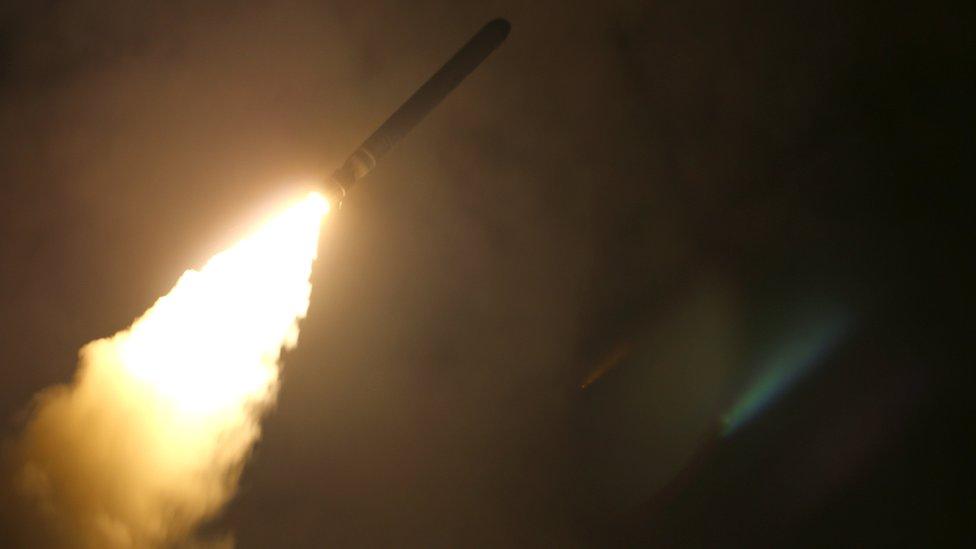Syria air strikes: Jeremy Corbyn urges MPs to assert authority
- Published
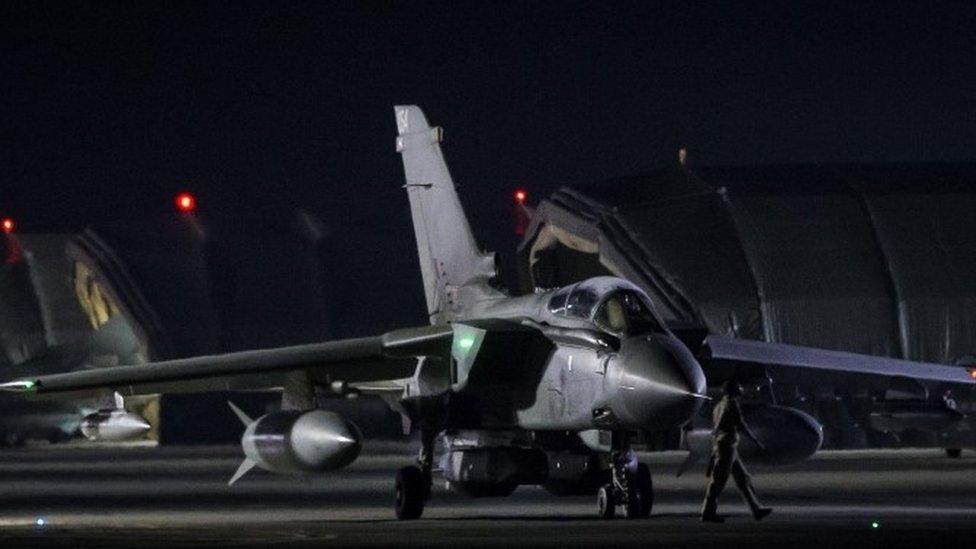
It is time for Parliament to "assert its authority" over UK military action after it was not consulted over Syrian air strikes, Jeremy Corbyn has said.
The Labour leader told MPs Theresa May had shown "flagrant disregard" for the convention that MPs should be consulted beforehand on foreign interventions.
He said the PM had "tossed aside" the precedent, set by the 2003 Iraq War vote, because it was "inconvenient".
Mrs May said she was "deeply conscious" of the "gravity" of her decision.
But she said that while in some circumstances it was "absolutely right and appropriate" for Parliament to debate military action beforehand, this could sometimes prevent the armed forces from acting "quickly and decisively".
After six hours of debate on Monday, MPs considered Parliament's role in approving military action in Syria in an emergency debate secured by Mr Corbyn, who has accused the PM of by-passing Parliament.
He said the decision to authorise air strikes without Parliament's approval set a precedent for possible, more dangerous action in the future.
May: We have not done this because President Trump asked us to
He said the debate was needed to clarify the government's obligation to consult MPs before military intervention, which has been a convention since the Iraq invasion of 2003.
"It seems the convention established in 2003 and in the cabinet manual is being tossed aside as simply being inconvenient," he said.
Calling for a new War Powers Act that would require Parliament to be consulted on military intervention, Mr Corbyn said this "is an essential, vital development of hundreds of years of democratic development and parliamentary accountability".
It was for the Commons "to take matters into its own hands and take back our control", he said.
Corbyn: PM accountable to Parliament not the whims of US president
Mrs May said she had made a statement to Parliament "at the first opportunity" to take MPs' questions, and responded angrily to a Labour suggestion that US President Donald Trump had been given more of a say than the UK Parliament.
"Let no-one in this House be in any doubt that neither I nor this government take instructions from any president or any other national government," she said, adding that the government only acted in the national interest.
At the end of the debate, MPs voted in favour of a motion that they had "considered Parliament's rights in relation to the approval of military action by British forces overseas".
Labour opposed the motion as a way of registering dissatisfaction at the lack of a Commons vote before the military action took place.
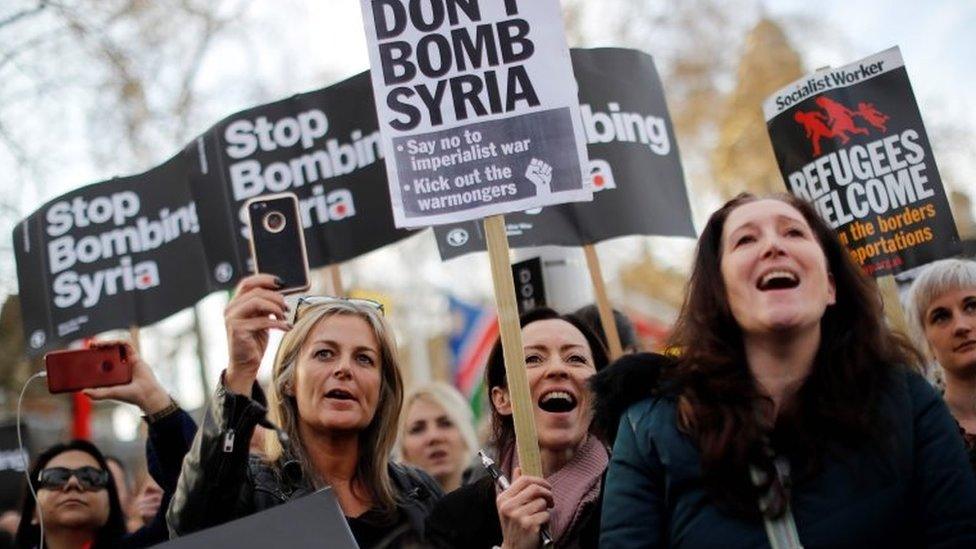
The Stop the War Coalition protested outside Parliament as MPs debated on Monday
Sites near Damascus and Homs were hit on Saturday by the US, France and UK in response to the alleged chemical attack on Douma on 7 April.
It is thought President Bashar al-Assad's regime had been stockpiling materials used to make chemical weapons at those sites, the Ministry of Defence said.
Both Syria, which denies any chemical use, and Russia, which provides military support to the Syrian government, have reacted angrily to the action.
Amateur footage shows strikes on a military research facility in Damascus, while state TV shows the damage
Downing Street published its legal case for its part in the strikes, stating that the action was legally justified on humanitarian grounds.
The UK and US have said the strikes were successful, with President Trump warning the US is "locked and loaded" for further action if there are more chemical attacks.
On Saturday, the UN Security Council rejected a resolution drafted by Russia, while all Nato allies have given the military action their full support.
- Published17 April 2018
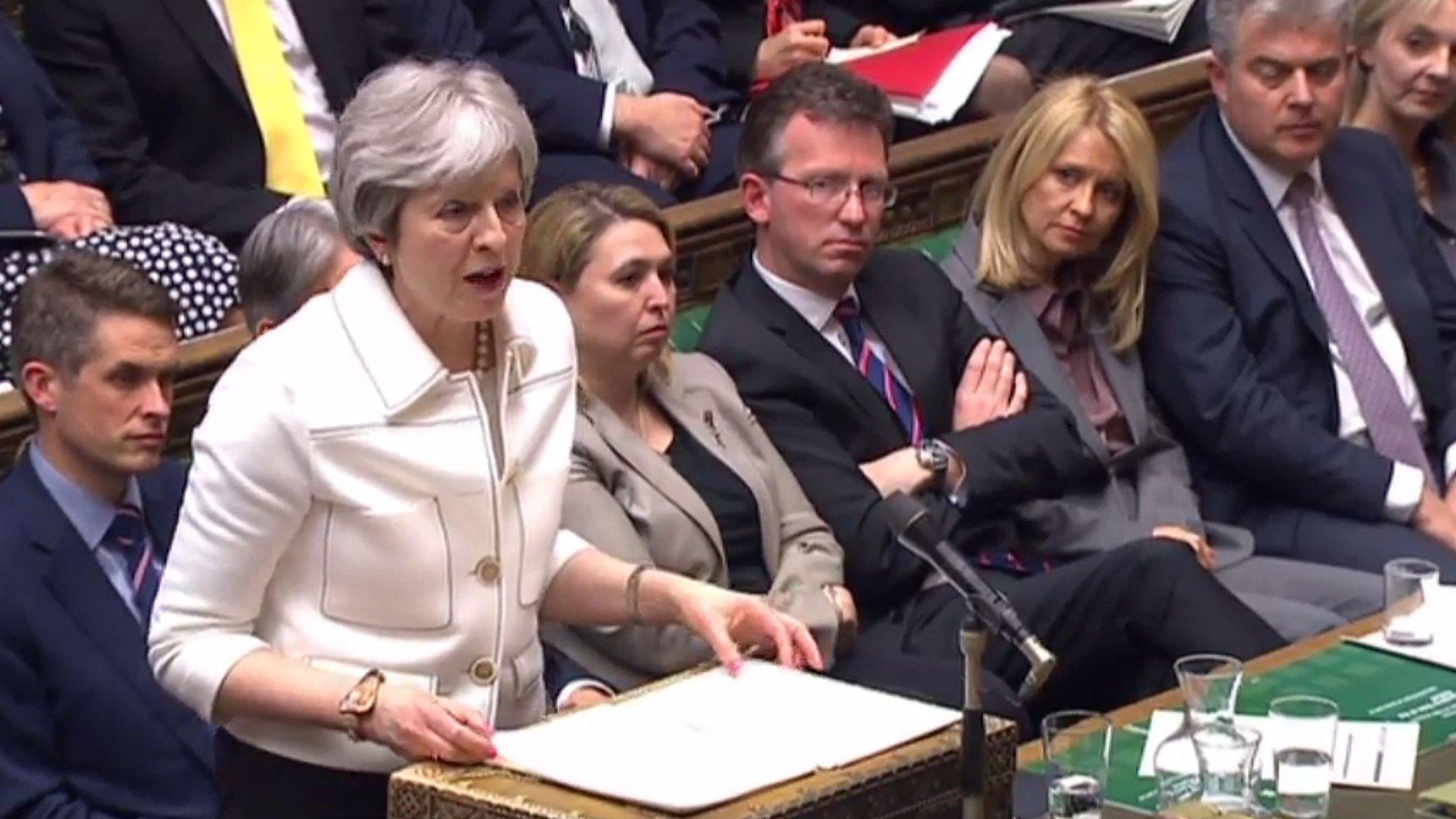
- Published14 April 2018
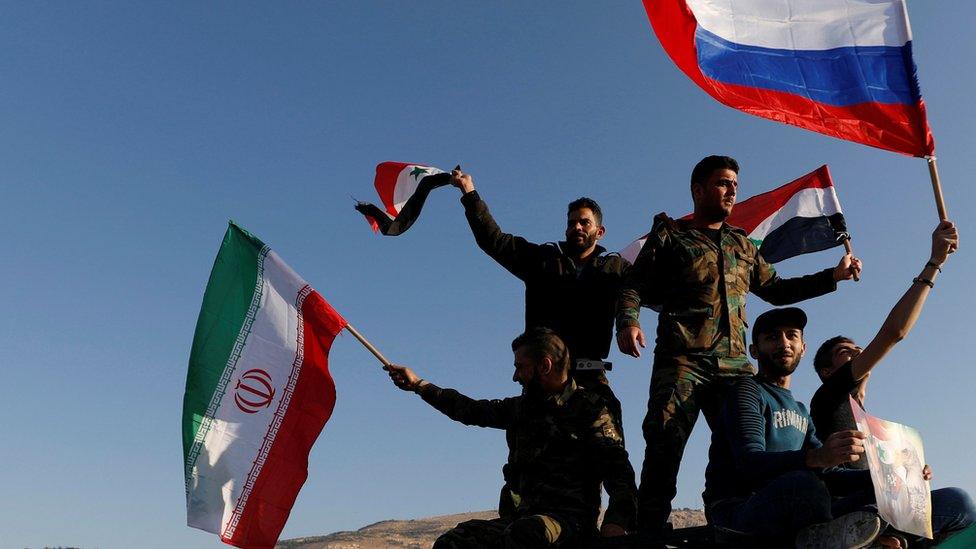
- Published15 April 2018
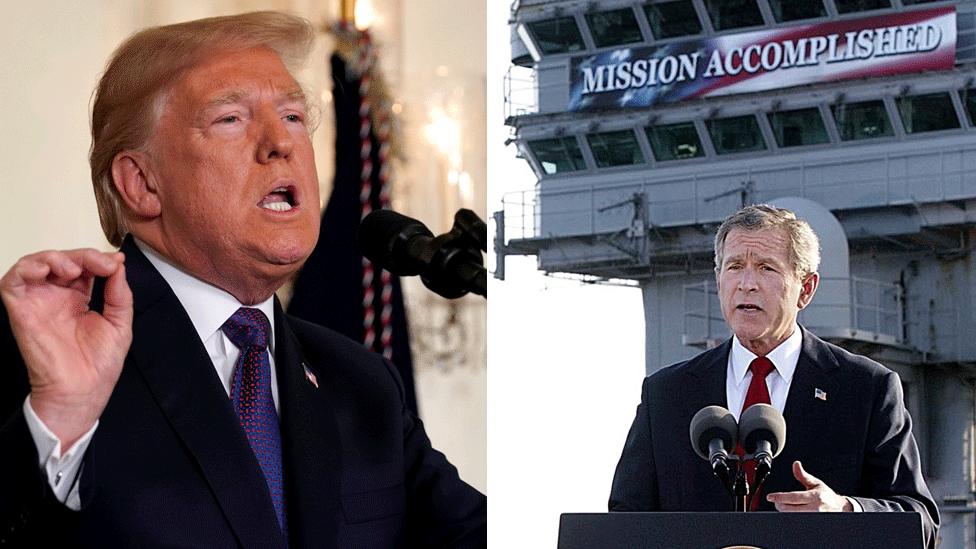
- Published14 April 2018
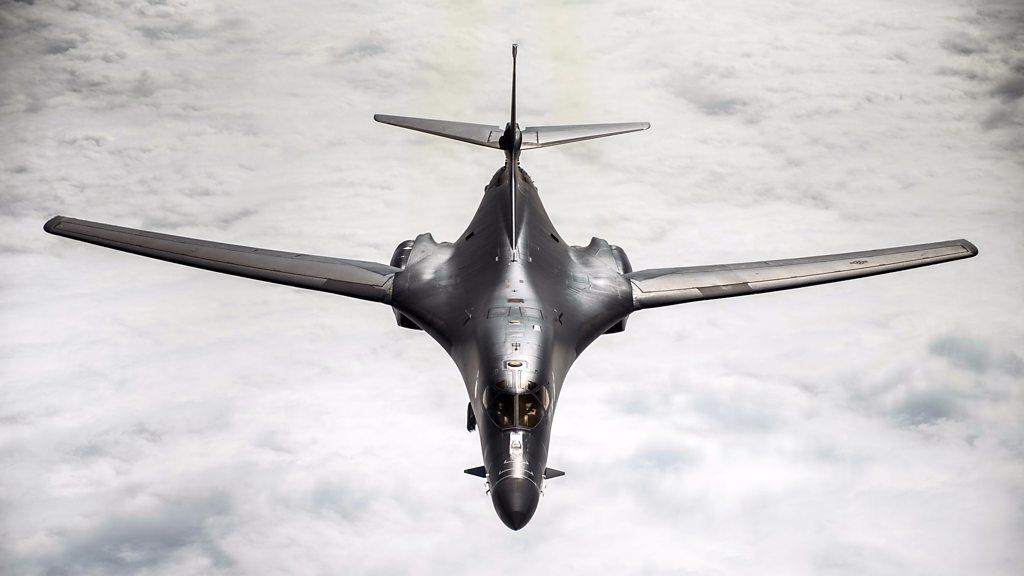
- Published15 April 2018
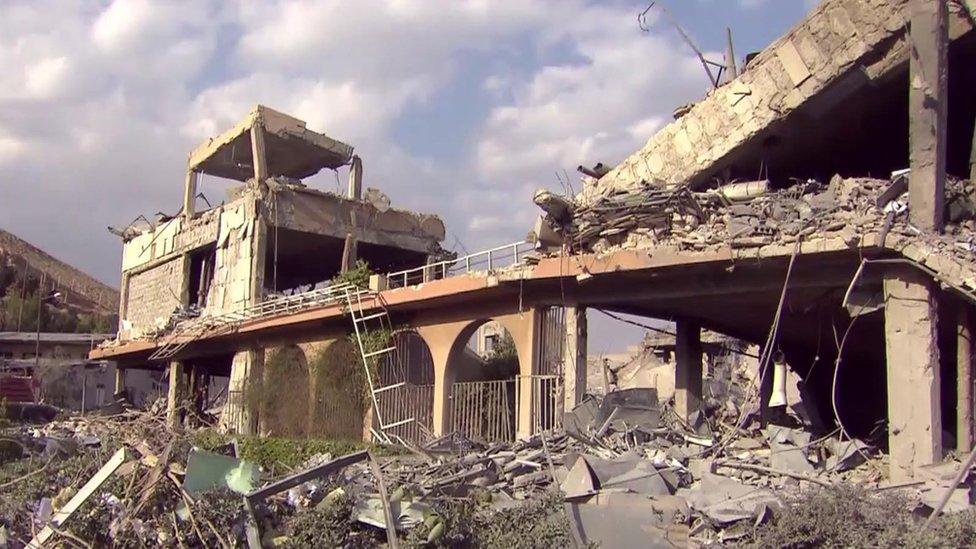
- Published15 April 2018
